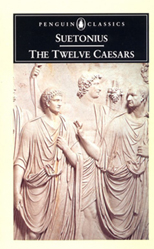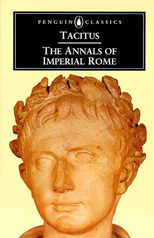Cleverly Invented Tales?
For Sunday February 6, 2005
Transfiguration Sunday
Lectionary Readings (Revised Common Lectionary, Year A)
Exodus 24:12–18
Psalm 2 or 99
2 Peter 1:16–21
Matthew 17:1–9
Is the Gospel really true?
Is it really true that God was in Christ, reconciling the world to Himself (2 Corinthians 5:19)? That He has destroyed death and brought life and immortality to light through the Gospel (2 Timothy 1:10)? Or perhaps the Gospel is a tall tale or some old wives fable?
One might identify with the Gospel for a number of reasons. For many people religion is a function of their geography: cuius regio, eius religio, your region determines your religion. You subscribe to Islam because you were born in Jakarta, or to Christianity because you were born in Jacksonville, but not because you think they are true. Others align themselves with the Gospel because they inherited it from their family: "Of course I am Christian, my parents insisted upon weekly church." Still others find in the Gospel a source of personal consolation or social morality. Freud thought that religious belief was a wish projection. But subscribing to the Gospel does not make it true. One might sincerely believe the Gospel and be sincerely wrong for believing something that is false. One ought to believe the Gospel only if it is true, and not just because it is good for society, personal morality, psychological comfort, or family tradition.
CS Lewis observed that asking whether the Gospel is true, apart from our own ideas, benefits us because "it forces [a person], again and again, to face up to those elements in original Christianity which he personally finds obscure or repulsive. He is saved from the temptation to skip, or slur, or ignore what he finds disagreeable"1 I must say that the Gospel reading for this week brings me up short. It is the sort of reading that I am tempted to "skip, slur, or ignore" as disagreeable, as the sort of reading that makes some dismiss the Gospel as a fable.
This week's Gospel recounts the Transfiguration of Jesus. The story occurs in all three synoptics, so we can safely say that it is central rather than peripheral to the early tradition (Matthew 17:1–9 = Mark 9:2–8 = Luke 9:28–36). In this story Jesus takes Peter, James and John to the top of a mountain, probably Hermon or Tabor. Three things happen—the face and clothes of Jesus become radiant or luminescent, the Old Testament figures Elijah and Moses appear to converse with Jesus, and the very voice of God speaks from the cloud, "This is my Son, whom I love; with him I am well-pleased. Listen to him!" I have never experienced anything close to this, and I don't know anyone who has. What should we make of it?
Some people who read Gospel stories like this categorically dismiss them as ludicrous. In my essay last week I mentioned the outspoken Oxford atheist Richard Dawkins. Another important atheist writing today is Daniel Dennett (b. 1942), professor of philosophy and Director of the Center for Cognitive Studies at Tufts University in Boston. In his book Darwin's Dangerous Idea (1995), Dennett compares religious faith to a childish fable: "The kindly God who lovingly fashioned each and every one of us and sprinkled the sky with shining stars for our delight—that God is, like Santa Claus, a myth of childhood, not anything a sane, undeluded adult could literally believe in. That God must either be turned into a symbol for something less concrete or abandoned altogether."
Dawkins and Dennett pack a punch, and their ideas deserve our attention, but in truth their derisive dismissals are 1,800 years old. Consider four examples from Roman history.
 |
The Twelve Caesars by Suetonius |
In his biography of the emperor Nero, Suetonius (75–160) described the early Christians as "a set of men adhering to a novel and mischievous superstition".2 Similarly, the historian Tacitus (c. 60–120) sneered at the "pernicious superstitions" of Christians.3 Pliny the Younger (62–113) ruled Pontus-Bithynia (in modern Turkey) as governor from 111–113, and in two famous letters to the emperor Trajan he expressed frustration about how to prosecute Christians, who comprised a considerable portion of his populace from every walk of life: "I judged it so much the more necessary to extract the real truth, with the assistance of torture, from two female slaves, who were styled deaconesses, but I could discover nothing more than depraved and excessive superstition. I therefore adjourned the proceedings, and sought immediately your counsel. For the matter seemed to me well worth referring to you especially considering the numbers endangered. Persons of all ranks and ages, of both sexes, are and will be involved in the prosecution. For this contagious superstition is not confined to the cities only, but has spread through the villages and rural districts; it seems possible, however, to check and cure it."4 A little later, an important critic of Christianity named Celsus (fl.175) combined socioeconomic snobbery with intellectual elitism to deride Christians: "In some private homes we find people who work with wool and rags, and cobblers, that is, the least cultured and most ignorant kind. Before the head of the household they dare not utter a word. But as soon as they can take the children aside or some women who are as ignorant as they are, they speak wonders...If you really wish to know the truth, leave your teachers and your father, and go with the women and the children to the women's quarters, or to the cobbler's shop, or to the tannery, and there you will learn the perfect life. It is thus that these Christians find those who will believe them.".5
 |
Annals by Tacitus |
When I read the Transfiguration story with care for nuance, though, it reads more like history than hallucination, more like fact that fable. Four incidental details lend the story a sense of verisimilitude, that is, not a proof but the ring of truth. Luke's version describes the three disciples as "very sleepy," suggesting the event occurred at night. Upon seeing Elijah and Moses, Peter was stunned and broke out in some sort of senseless babble. Third, the disciples are described as scared out of their wits. And finally, we read that they initially kept this experience to themselves and did not tell anyone. None of these four incidental details adds much, if anything, to the theological significance of the story; nor does there seem to be any reason to include them except as part of a firsthand account of an actual event.
Writing about the Transfiguration several decades later, this is precisely what Peter says in the Epistle for this week: "We did not follow cleverly invented stories when we told you about the power and coming of our Lord Jesus Christ, but we were eyewitnesses of his majesty. For he received honor and glory from God the Father when the voice came to him from the Majestic Glory, saying, 'This is my son whom I love; with him I am well-pleased.' We ourselves heard this voice that came from heaven when we were with him on the sacred mountain" (2 Peter 1:16–18).
I admit that I might be wrong, but I do believe the Gospel is true. I side with people who claimed to be eyewitnesses of the Transfiguration, and who did so knowing that their detractors could demonstrate a false claim, knowing that a needlessly ludicrous claim would harm their cause, and knowing, as they surely did for the first 250 years of the church, that making outrageous claims would earn them social ridicule and physical persecution (Pliny above). To me, Peter and the disciples would have been false to deny an experience that they had, no matter how bizarre or difficult to comprehend and explain.
[1] CS Lewis, The Joyful Christian, New York: Macmillan, 1977, p. 183.
[2] Suetonius, Life of Nero, xvi.
[3] Tacitus, Annals, xv. 44.
[4] Pliny the Younger, Letters to Trajan, 10.96.
[5] Origen, Against Celsus, 3.55.





